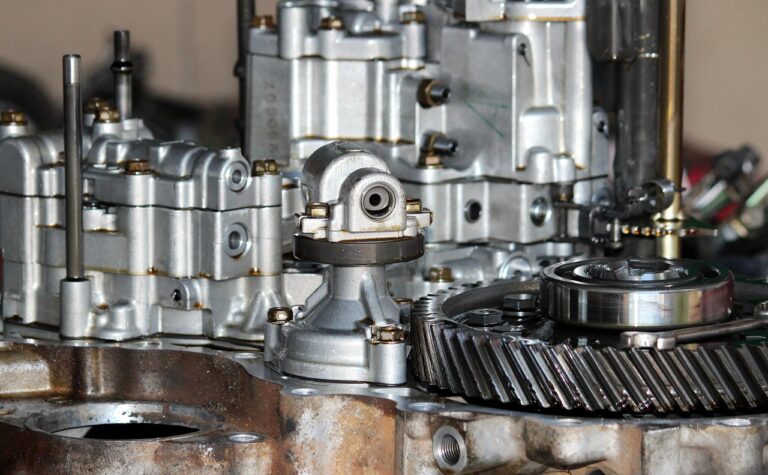Image by Ulrike Mai from Pixabay
Your car’s transmission is a big part of how it works. It takes power from the engine and sends it to the wheels so your car can move and change gears smoothly. If the transmission breaks, fixing it can cost a lot of money—sometimes thousands of dollars. But you can avoid these big costs with easy steps. Taking care of your transmission and driving carefully keeps your car running well and saves you money. Let’s learn simple ways to keep your transmission strong and your car happy.
Stay Consistent with Regular Maintenance
Regular maintenance is crucial for a healthy transmission. It’s like giving your car a check-up to keep it healthy. Just like you change the oil to help the engine, you need to check the transmission to make it last. Transmission fluid is super important—it keeps parts moving easily, stops them from getting too hot, and prevents damage. Over time, this fluid gets dirty or old, which can make gears grind or parts break.
Check your car’s manual to see when to service the transmission—usually every 30,000 to 60,000 miles. A mechanic will look at the fluid, change it if it’s old, and check for problems. Doing this often stops small issues from becoming big, expensive ones. For example, clean fluid is like drinking clean water—it keeps your transmission working right. Skipping this is like ignoring a small cut—it can get worse and cause trouble.
Keep an Eye on Fluid Levels and Leaks
Transmission fluid helps your car’s gears move without rubbing or getting too hot. If the fluid is low or there’s a leak, your transmission can get hurt fast. Checking the fluid is an easy way to find problems early.
Look under your car for red puddles or spots—that might mean a leak. If you smell something burning or the gears feel jerky, the fluid could be low or bad. Think of your transmission like a bike chain. Without oil, the chain gets stiff and hard to move. Low fluid does the same to your transmission, making parts wear out. If you see these signs, take your car to a mechanic fast to fix the problem and avoid a big bill.
Drive Smoothly and Responsibly
The way you drive affects your transmission a lot. Going too fast, stopping suddenly, or driving in heavy traffic can stress the system. This stress makes parts wear out quicker.
To help your transmission, press the gas pedal softly and brake gently. In cold weather, let your car warm up for a minute before driving. This helps the fluid move better and protects the transmission. Imagine your transmission as a person running. If they run too fast all the time, they get tired. Driving smoothly is like running at an easy pace—it keeps your transmission healthy, even in busy traffic.
Pay Attention to Warning Signs
Your car gives you hints when the transmission has a problem. Catching these hints early stops small issues from turning into big ones. Listen for strange noises like grinding, whining, or clunking when you change gears. If the car slips out of gear, takes too long to shift, or feels shaky, that’s a warning. Also, check your dashboard for lights, like the check engine light.
Ignoring these signs is like ignoring a sore throat—it won’t get better and might get worse. For example, a grinding noise could mean dirty fluid or a bad part. Taking your car to a mechanic right away can save you from a huge repair cost. Acting fast keeps your car running and saves money.
Avoid Overloading Your Vehicle
Putting too much weight in your car can harm the transmission. Towing heavy things or carrying lots of stuff makes the system work harder and get hot. Too much heat can break the transmission.
Check your car’s manual to see how much weight or towing it can handle. If you tow or carry heavy loads often, get your transmission checked more. Think of your transmission like a backpack—if you put too much in it, it might break. Keeping the weight low and checking the transmission often helps your car stay strong.
Use the Correct Transmission Fluid
Not all transmission fluids are the same. Using the wrong one can cause problems, like bad movement or too much heat, which can hurt your transmission. Always use the fluid your car’s manual says to use. When you schedule a transmission service in Salt Lake City, ask the mechanic to use the right fluid for your car.
Using the wrong fluid is like putting juice in a recipe that needs milk—it won’t work. The right fluid keeps your transmission moving well, staying cool, and lasting longer. A good mechanic will know this and use the correct fluid to keep your car in great shape.
Address Minor Issues Before They Escalate
Small transmission problems can grow into big ones if you don’t fix them. A tiny leak, a slow gear change, or a shaky shift might seem small, but they can cause big damage if ignored.
For example, a small leak can make fluid levels low, causing parts to rub. A slow shift might mean a part is starting to break. Getting these checked by a mechanic early stops them from becoming costly repairs. It’s like fixing a tiny hole in your shoe before it rips open. Since you use your car a lot, fixing small problems keeps it running and saves you money.
Long-Term Savings Through Prevention
Spending a little on maintenance now saves you a lot later. Replacing a transmission is one of the most expensive car fixes—sometimes as much as a used car. Regular maintenance, like changing fluid and checking the system, stops big problems and keeps your car running well.
A $200 service is way cheaper than a $4,000 repair. Plus, regular care makes your car more reliable and can make it last years longer. Think of it like eating healthy—it takes a little work, but it keeps you strong and saves you from big doctor bills. Taking care of your transmission is a smart way to keep your car safe, make it work better, and avoid stress.
Disclaimer: This article is for general information only and is not professional advice. We try to give accurate and helpful information, but we can’t promise it’s complete, correct, or right for your car. Any actions you take are at your own risk. For help with your car’s transmission or maintenance, talk to a qualified mechanic or car expert. This article is not a replacement for professional car services or checks. It is not connected to or supported by Google or any other group unless stated. Always check information with trusted sources before doing anything.

Jared H. Furness is a well-known sports analyst and writer. He is known for his skill in player stats in sports like football, basketball, and baseball. Jared has a sharp eye for detail and a passion for uncovering stories behind the numbers. He is known for writing detailed, SEO-friendly articles. They attract both fans and professionals.
His work often appears on major platforms. It offers detailed breakdowns of player performances, game highlights, and strategic insights. Jared makes complex statistics easy to understand and engaging. His articles, like the Boston College Eagles vs. UVA game analysis and the Arizona Diamondbacks vs. Miami Marlins match, show his talent for mixing data analysis with engaging stories.
Jared is known for producing human-written, plagiarism-free content. His pieces rank well on Google. This helps fans and analysts easily find his expert views on key matchups. Jared H. Furness raises the bar in sports stats journalism. He highlights Bobby Witt Jr.’s amazing plays and key moments in EuroLeague basketball.





